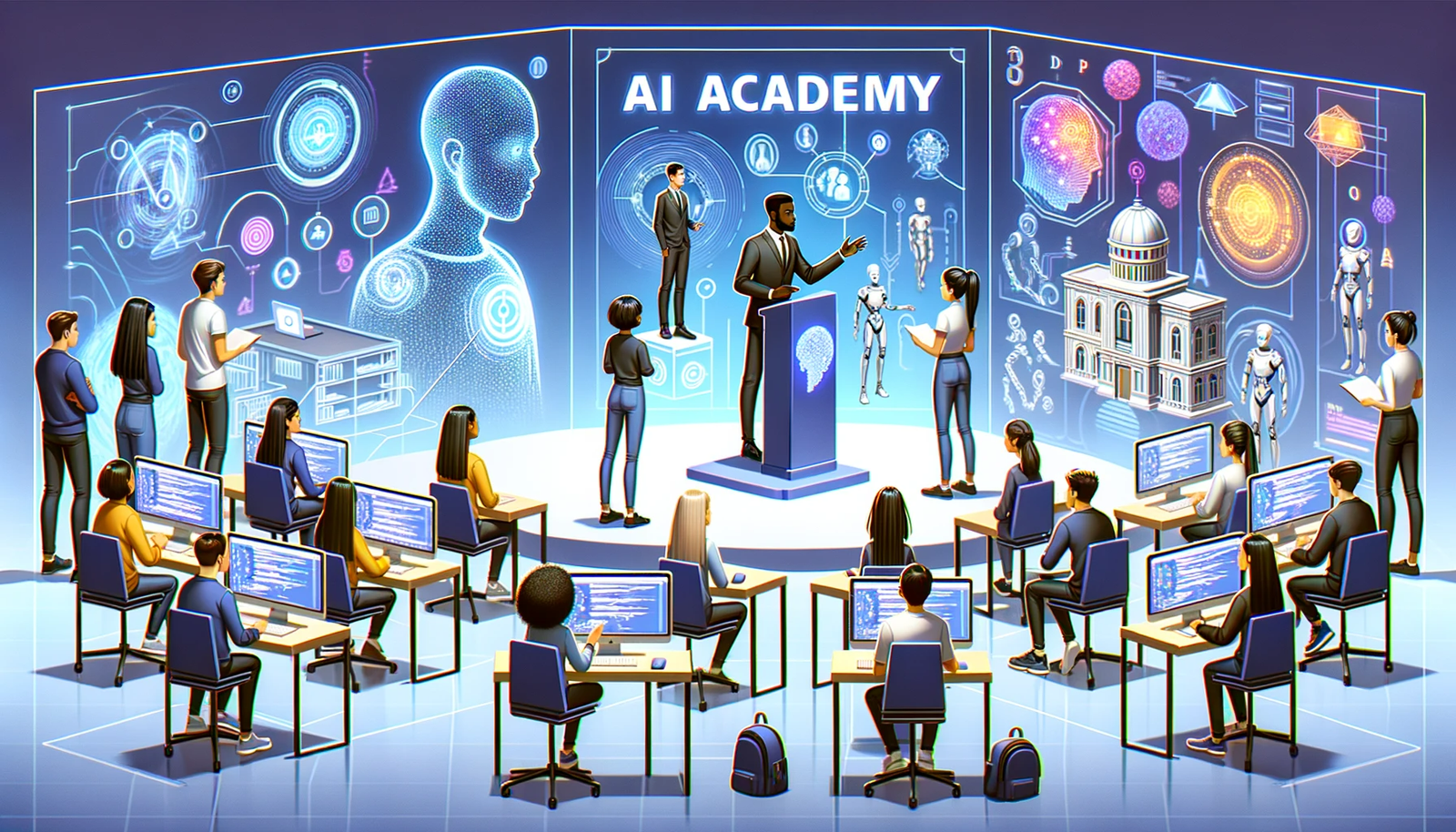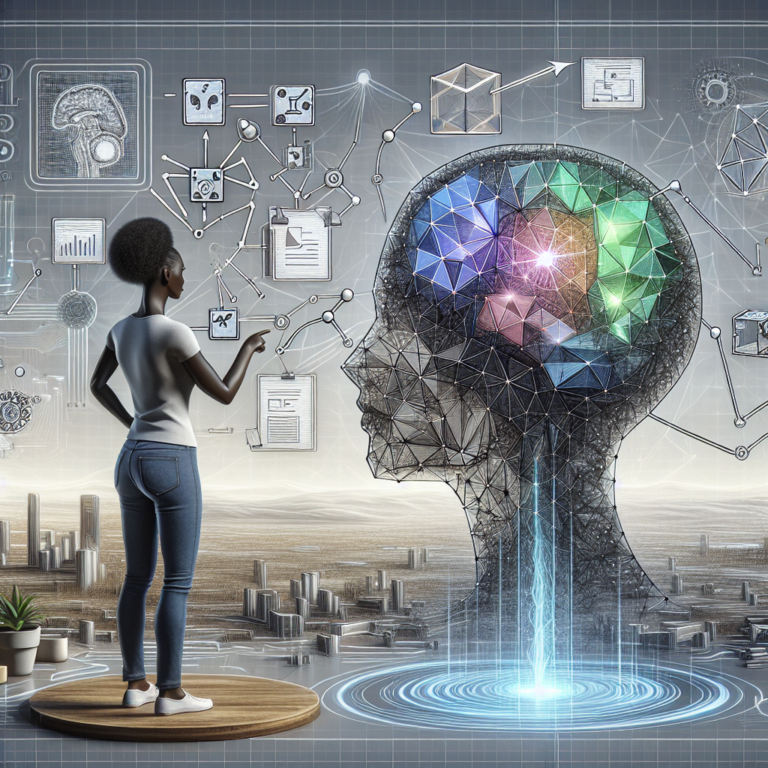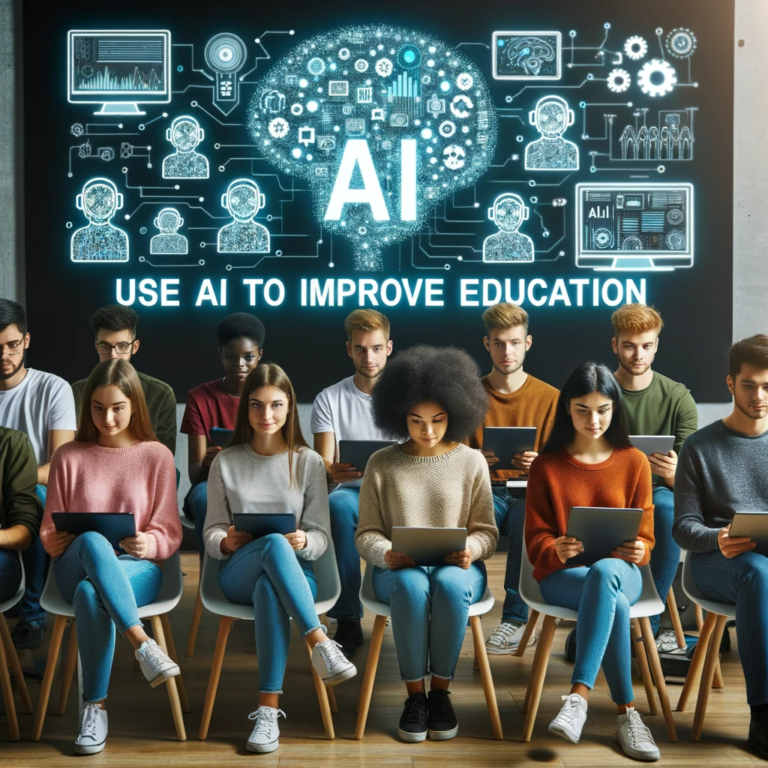
Are you intrigued by the world of Artificial Intelligence (AI) and interested in becoming an AI engineer? Look no further, as this article will guide you on the path to achieving your goal. Whether you are a beginner or already have some experience in the field, this article will provide valuable insights and tips on how to become an AI engineer. From acquiring the necessary skills and qualifications to finding job opportunities, this article covers everything you need to know to embark on a successful career in AI engineering. Get ready to unlock the doors to this rapidly evolving field and make your mark in the world of AI.

Education
To become an AI engineer, it is important to have a strong educational background. A Bachelor’s Degree in Computer Science is usually the first step towards pursuing a career in this field. This degree provides a solid foundation in computer science principles and programming languages, which are essential for understanding and developing AI systems.
After completing your Bachelor’s Degree, it is highly recommended to pursue a Master’s Degree in AI or a related field. This advanced degree allows you to specialize in artificial intelligence and gain in-depth knowledge and expertise in the field. It provides a deeper understanding of machine learning algorithms, deep learning architectures, and other AI techniques.
Skills and Knowledge
In addition to a formal education, developing the necessary skills and knowledge is crucial for becoming an AI engineer. Here are some key areas to focus on:
Programming Languages
Proficiency in programming languages is essential for implementing AI algorithms and developing AI systems. Python is the most commonly used language in the field of AI due to its simplicity, readability, and the availability of various AI libraries and frameworks.
It is important to have a strong understanding of concepts like object-oriented programming, data structures, and algorithms. Familiarity with other languages such as Java, C++, and R can also be beneficial in certain AI applications.
Mathematics and Statistics
AI heavily relies on mathematics and statistics for modeling and analyzing data. A solid foundation in linear algebra, calculus, probability, and statistics is essential for understanding the underlying principles of AI algorithms.
Having a good grasp of mathematical concepts helps in designing and optimizing AI models, evaluating their performance, and interpreting the results. Additionally, knowledge of statistics is crucial for generating meaningful insights from data and making data-driven decisions.
Machine Learning and Deep Learning
Machine learning is at the core of AI, and understanding its fundamentals is vital for becoming an AI engineer. You should have a strong grasp of supervised and unsupervised learning algorithms, as well as knowledge of model selection, evaluation, and optimization.
Deep learning, a subset of machine learning, focuses on neural networks and their architectures. It involves training models on large datasets to automatically learn features and patterns. Understanding deep learning algorithms, such as convolutional neural networks (CNNs) and recurrent neural networks (RNNs), is essential for building sophisticated AI systems.
Data Processing and Analytics
AI engineers need to be proficient in data processing and analytics to work with large and complex datasets. This includes skills in data cleaning, data preprocessing, and data transformation. Familiarity with tools like Pandas and NumPy is crucial for handling and manipulating data.
Moreover, having knowledge of data visualization techniques and tools like Matplotlib and Tableau helps in effectively communicating insights and findings from data analysis. The ability to extract valuable information from data is a key skill for an AI engineer.
Natural Language Processing
Natural Language Processing (NLP) is a field of AI that focuses on enabling machines to understand and generate human language. As an AI engineer, it is important to have a good understanding of NLP techniques and algorithms.
You should learn about text preprocessing, tokenization, part-of-speech tagging, and sentiment analysis. Familiarity with NLP libraries like NLTK and spaCy, as well as frameworks like TensorFlow and PyTorch for NLP-related tasks, will be valuable in building NLP applications.
Robotics and Automation
AI is extensively used in robotics and automation to enable machines to perform tasks autonomously. Gaining knowledge in this area can open up opportunities to work on cutting-edge AI projects.
Learning the fundamentals of robotics, including robot perception and control, is essential for developing AI systems that interact with the physical world. Understanding concepts like sensor fusion, localization, and mapping is crucial for building intelligent robotic systems.
Work Experience
To solidify your skills and gain practical experience, it is recommended to seek internships or co-op programs during your education. These opportunities allow you to work on real-world AI projects and collaborate with industry professionals.
Entry-level positions in AI-related fields are also a great way to gain experience. By working on challenging projects, you can apply your knowledge and skills in a professional setting. This real-world experience will not only enhance your technical abilities but also give you valuable insights into the applications of AI in different industries.
Certifications
Obtaining AI-specific certifications can further showcase your expertise and dedication to the field. These certifications validate your knowledge and skills, making you more competitive in the job market.
There are several reputable organizations that offer AI certifications, such as IBM, Microsoft, and Google. These certifications cover various AI topics, including machine learning, deep learning, and natural language processing. Additionally, pursuing cloud computing certifications, such as those offered by Amazon Web Services (AWS) or Microsoft Azure, can be beneficial since cloud computing is closely tied to AI development.

Building a Strong Foundation
To become a successful AI engineer, it is important to build a strong foundation in the fundamentals. Here are some key areas to focus on:
Learn Computer Science Fundamentals
A solid understanding of computer science fundamentals is essential for becoming an AI engineer. Concepts like data structures, algorithms, computer architecture, and operating systems lay the groundwork for AI development. Investing time in learning these fundamentals will provide a strong foundation for advanced AI concepts.
Master Programming Languages
Python is the go-to language for AI development, so mastering it is crucial. Ensure you have a good understanding of Python syntax, data types, control flow, and file handling. Practice implementing AI algorithms and models in Python to solidify your programming skills.
Moreover, it is beneficial to have knowledge of other programming languages like Java, C++, and R, as they might be required in certain AI applications or research areas.
Gain Knowledge in Mathematics and Statistics
To effectively work with AI algorithms and models, a strong background in mathematics and statistics is essential. Invest time in learning linear algebra, calculus, probability, and statistics. These mathematical concepts serve as the building blocks for machine learning and deep learning algorithms.
Understanding optimization techniques, such as gradient descent, and mathematical concepts like eigenvectors and eigenvalues is crucial for optimizing AI models. Statistical concepts like hypothesis testing and regression analysis help in making informed decisions based on data.
Focus on Machine Learning
Machine learning forms the backbone of AI, and focusing on this area is essential for becoming an AI engineer. Here’s how you can master machine learning:
Understand the Core Concepts
Start by understanding the basic concepts of machine learning, including supervised and unsupervised learning, feature extraction, and model evaluation. Gain knowledge of various algorithms like linear regression, logistic regression, decision trees, and support vector machines.
Explore Various ML Techniques
Dive deeper into machine learning by exploring different techniques and algorithms. This includes ensemble methods like Random Forests and Gradient Boosting, dimensionality reduction techniques like Principal Component Analysis (PCA), and clustering algorithms like K-means and DBSCAN.
Get Hands-on Experience
Practice implementing machine learning algorithms in Python and work on real-world datasets. Apply your knowledge to tasks like classification, regression, and clustering. Explore popular machine learning libraries like scikit-learn and TensorFlow to streamline your workflow and accelerate the development process.
Deep Dive into AI
Deep learning, a subset of machine learning, focuses on neural networks and their architectures. To become proficient in AI, it is important to delve into deep learning techniques. Here’s how you can do it:
Study Deep Learning Algorithms and Architectures
Start by understanding the fundamentals of deep learning. Learn about artificial neural networks, backpropagation, and activation functions. Explore various architectures like convolutional neural networks (CNNs) for image recognition tasks and recurrent neural networks (RNNs) for sequential data analysis.
Explore Neural Networks and Their Applications
Deep dive into neural networks and gain hands-on experience with frameworks like TensorFlow or PyTorch. Implement and train neural networks on large datasets to solve complex problems. Stay updated with the latest advancements in neural network architectures, such as GANs (Generative Adversarial Networks) and Transformers.
Master Reinforcement Learning
Reinforcement learning is another important aspect of AI. It involves training an agent to interact with an environment and learn optimal actions through reward systems. Familiarize yourself with reinforcement learning algorithms like Q-learning and policy gradients. Implement reinforcement learning algorithms in simulated environments to solve challenging tasks.
Develop Data Processing and Analytics Skills
Working with large datasets is a common requirement in AI projects. Therefore, developing data processing and analytics skills is crucial for an AI engineer. Here’s how you can do it:
Learn Data Collection and Preprocessing
Understand the process of collecting and preprocessing data. Learn techniques for handling missing data, outlier detection, and data normalization. Understand how to deal with unstructured data, such as text and images.
Become Proficient in Data Analysis Tools
Master popular data analysis tools like Pandas and NumPy in Python. These tools provide efficient data manipulation and analysis capabilities. Learn how to perform exploratory data analysis, visualize data, and extract meaningful insights.
Gain Experience with Big Data Technologies
To work with large datasets, it is important to gain experience with big data technologies. Familiarize yourself with tools like Apache Hadoop, Apache Spark, and distributed file systems like HDFS. Understanding the principles of distributed computing and parallel processing is crucial for efficiently working with big data.
Master Natural Language Processing
Natural Language Processing (NLP) enables machines to understand and generate human language. Here’s how you can become proficient in NLP:
Understand NLP Techniques
Start by learning about the various techniques used in NLP, such as sentiment analysis, named entity recognition, and text classification. Understand the challenges and complexities involved in processing and understanding human language.
Learn to Work with Text Data
Become skilled at preprocessing and cleaning text data. Learn techniques like tokenization, stemming, lemmatization, and stop-word removal. Understand how to handle different types of text data, including social media posts, news articles, and scientific papers.
Explore NLP Libraries and Frameworks
Familiarize yourself with popular NLP libraries and frameworks like NLTK, spaCy, and Gensim. These libraries provide pre-trained models and tools for text processing, part-of-speech tagging, and text summarization. Explore advanced NLP techniques like word embeddings and transformer models like BERT.
Understanding Robotics and Automation
AI plays a crucial role in robotics and automation. Gaining knowledge in this area can provide unique opportunities to work on cutting-edge AI projects. Here’s how you can understand robotics and automation:
Learn Robotics Fundamentals
Start by learning the basics of robotics, including robot kinematics, dynamics, and control. Understand how robots perceive and interact with their environment through sensors like cameras, LIDAR, and GPS. Familiarize yourself with robot localization and mapping techniques.
Study Robot Perception and Control
Deepen your understanding of robot perception and control. Learn about computer vision techniques for object detection and recognition. Understand how robots make decisions and plan their actions using control theory and path planning algorithms.
Explore Automated Systems
Explore the field of automation and understand how AI is used to automate various processes and systems. Gain knowledge of technologies like robotic process automation (RPA) and industrial control systems (ICS). Understand how AI is integrated into automated systems to improve efficiency and productivity.
By following this comprehensive guide, you can start your journey towards becoming an AI engineer. Remember to focus on building a strong educational foundation, gaining practical experience, and continuously updating your skills to keep up with the rapidly evolving field of AI. With dedication and hard work, you can become a successful AI engineer and contribute to the development of intelligent systems that shape the future.






